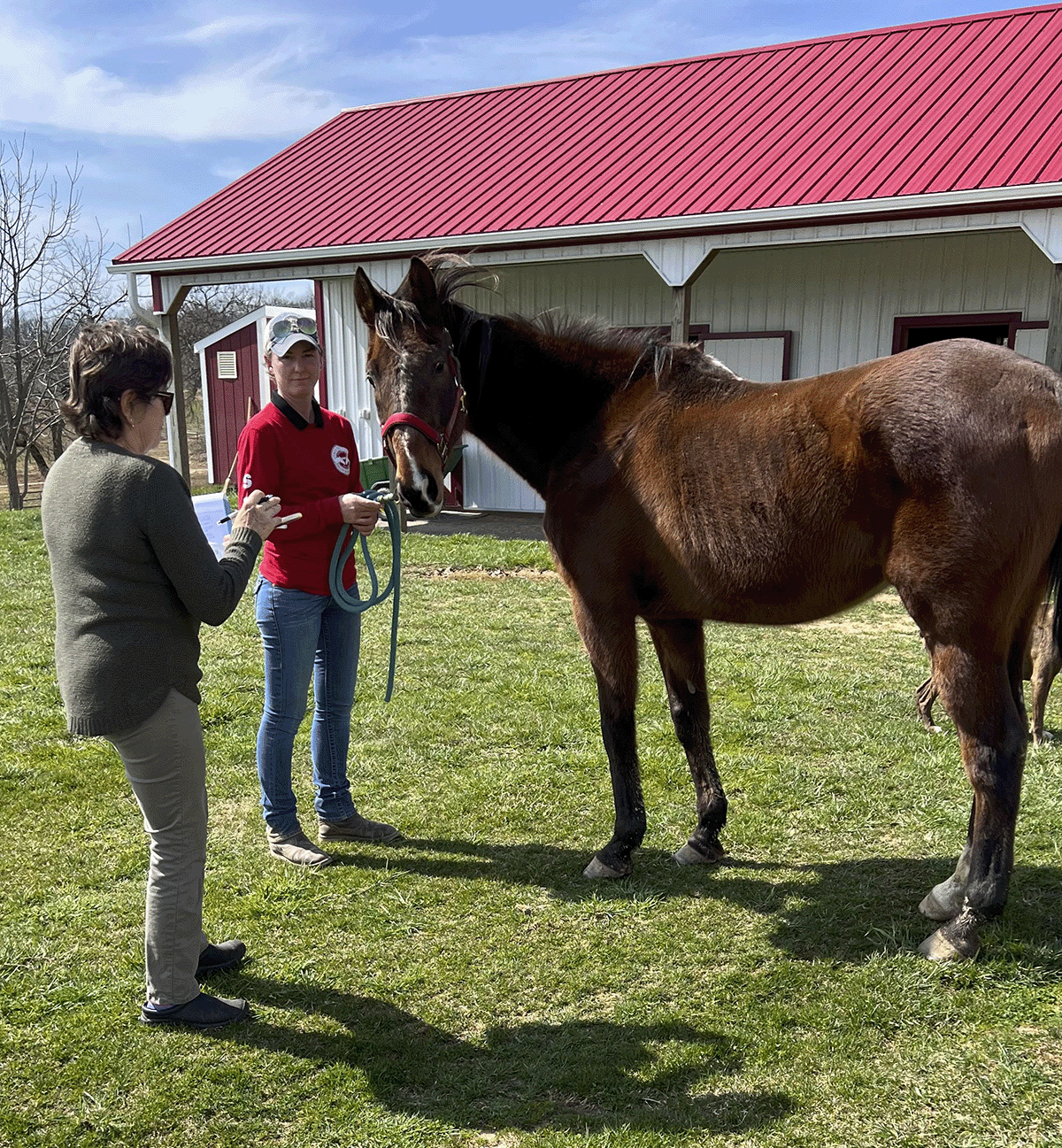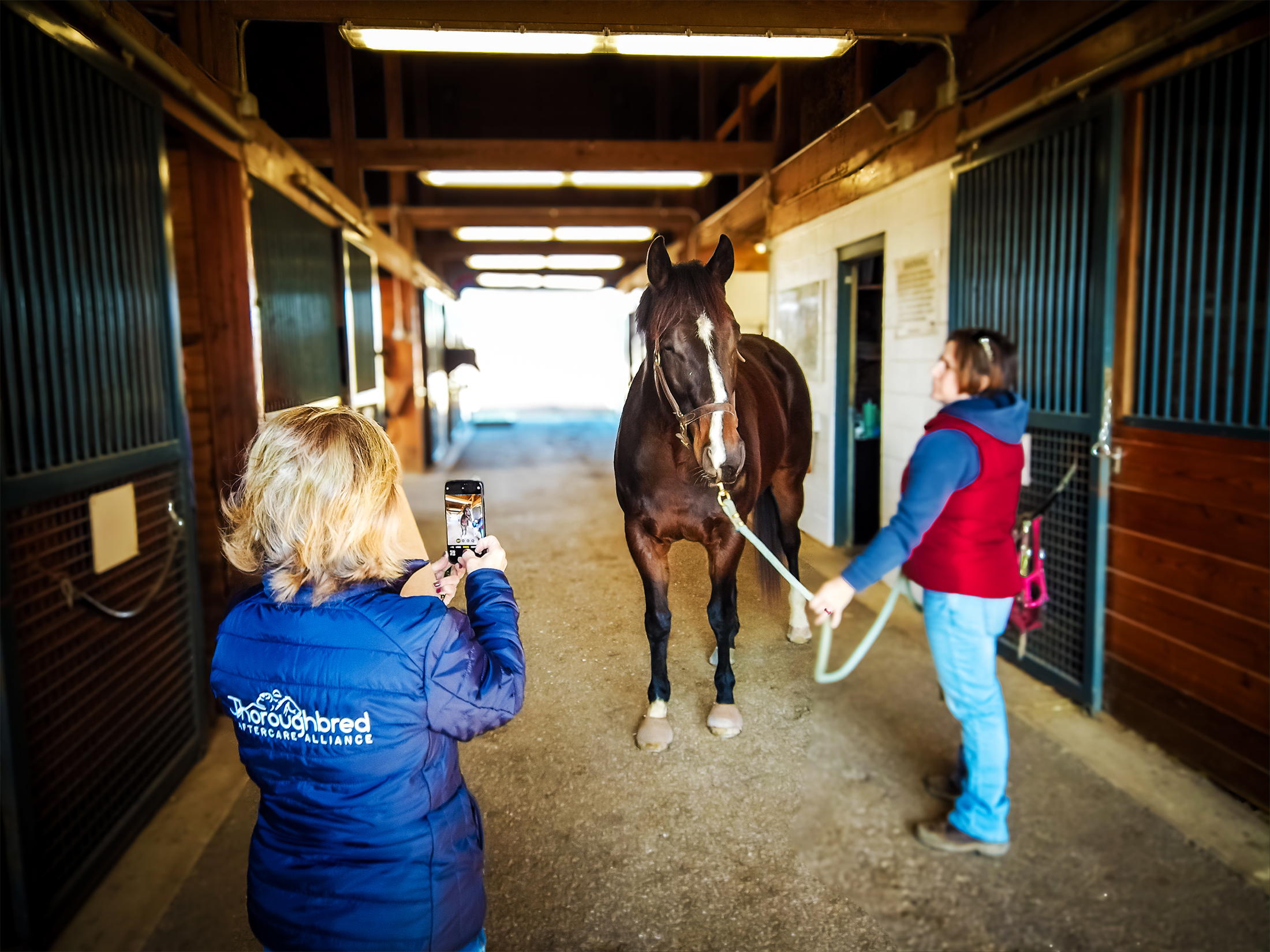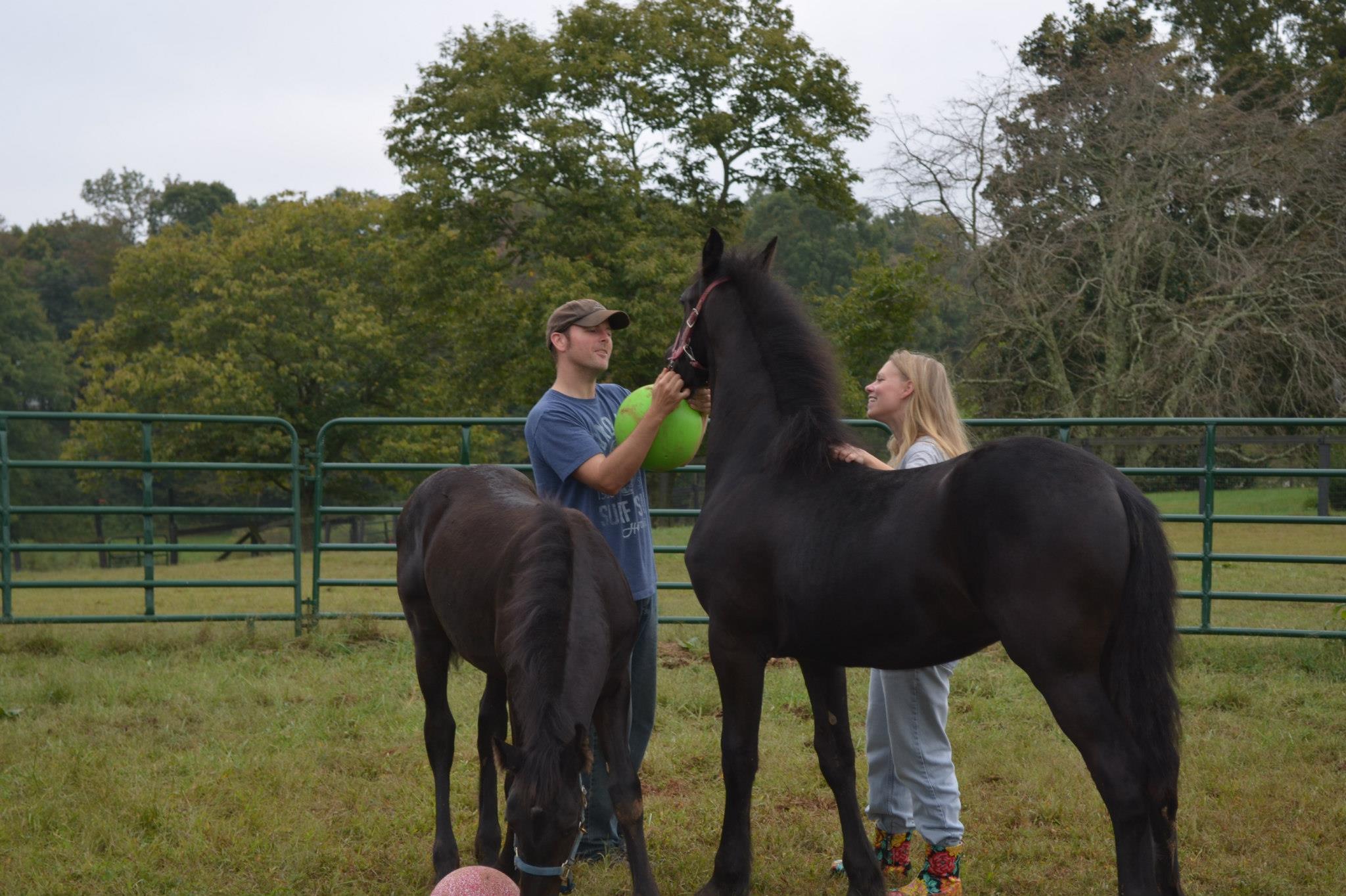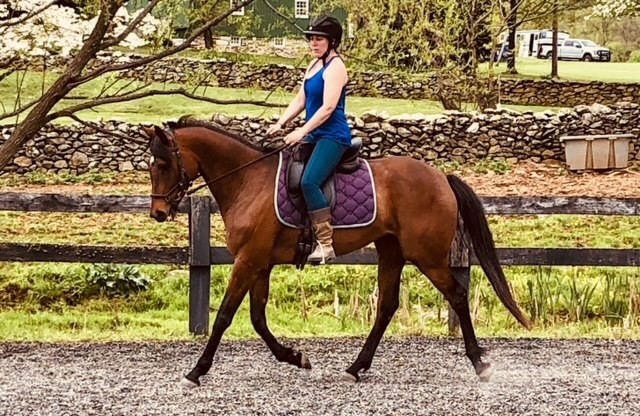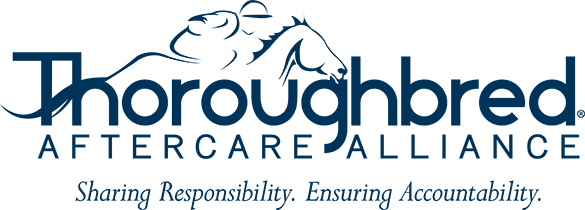Inspection
All Posts & News Press Releases Success Stories Aftercare Editorials Supporter Features Inspector Spotlights Previous Post Inspector Spotlight: Robin Coblyn Inspector Spotlight: Robin Coblyn By: Alexis Arbaugh May 7, 2024 Inspector Spotlight Tags:Inspection, Inspector To qualify for accreditation and receive a grant from Thoroughbred Aftercare Alliance, every facility within an organization must undergo a comprehensive inspection. These inspections are carried out by either Thoroughbred Aftercare Alliance staff or one of many approved inspectors located across the country. Sight inspectors are Thoroughbred Aftercare Alliance’s eyes at every facility. They include veterinarians and other equine professionals. Inspectors have prior experience in animal care and Thoroughbred aftercare, which makes them well-equipped to assess facilities seeking accreditation. During an accreditation inspection, the facility and everything that goes into running it is under review. This includes the staff, equine management and care practices, fields, barn/buildings, cleanliness standards, maintenance protocols, and financial management, among numerous other factors, taking pictures as they go. When an inspector visits a facility, all these elements are thoroughly examined. Robin Coblyn has been working for the Thoroughbred Aftercare Alliance since 2020, conducting inspections in the Mid-Atlantic region of the United States. She is currently semi-retired from the film/production industry, where she held various roles including Production Manager, Coordinator, and Field Producer. In addition to her film/production career, she ran a small boutique breeding business where she mainly bred Thoroughbreds for racing and Irish Draught horses for Eventing. “I am lucky enough to have co-bred a stakes-winning mare who is now a [successful] broodmare,” wrote Robin. After many fulfilling years of breeding horses, Robin decided to retire, largely influenced by the devastating loss of her homebred colt to Lawsonia, which affected her deeply. In her spare time, Robin enjoys spending time with her retired horses and training her dogs. She also dedicates a significant amount of her free time to yoga and relaxing. Although semi-retired from film/production, she is still involved in some video projects of her own. “My involvement with Thoroughbreds has always extended beyond their racing days,” Robin wrote. “It is important that every owner, breeder, trainer, and jockey who is connected to a racehorse has their best interest at heart when their racing career comes to an end.” Thoroughbred Aftercare Alliance was formed to provide horsemen with good and vetted options for retiring horses when they are done racing. Robin has been a passionate equestrian since she was young, as her family owned horses from the time she was just 10 years old. As a child, she loved Pleasure Riding and Fox Hunting. As an adult, she served as an assistant manager at a Thoroughbred breeding farm in Maryland. There, she had the honor of being the groom for The Very One, a stakes-winning mare who earned over $1.1 million with 71 starts. Years later, she acquired her very own horse and began showing in the Hunters and Dressage disciplines. After she married her husband Skip, they purchased property in Montgomery County, Maryland, where Robin established her breeding operation. In her spare time, she worked for Thoroughbred sales companies in Kentucky to gain experience and additional knowledge in breeding. It was at one of these sales where she obtained her first broodmare that kickstarted her business. Robin continues to work for Thoroughbred sales companies as much as she can in her retirement. Robin takes great pride in her homebred horses, whether they’re destined for racing or for sport. Before they go to their new homes, instilling socialization and good manners in her young horses is a top priority for Robin, ensuring they are well-prepared for their transition. “My experience at the track has shown me that horses who are difficult to handle sometimes get the short end of the kindness stick in busy racing stables, and I did not want that to happen to any I had bred,” explained Robin. As a responsible horse owner and breeder, Robin diligently keeps track of all her homebred horses and ensures that each one is brought back to her farm after their racing careers come to an end. Once they are home again and under her care, they receive the retraining they need to start their second career. In addition to having her own retraining program, she works with Kim Clark at Thoroughbred Aftercare Alliance accredited organization Thoroughbred Placement Resources in Maryland to foster their off-the-track-Thoroughbreds until they find permanent homes. “My involvement with Thoroughbreds has always extended beyond their racing days,” Robin wrote. “It is important that every owner, breeder, trainer, and jockey who is connected to a racehorse has their best interest at heart when their racing career comes to an end.” Thoroughbred Aftercare Alliance was formed to provide horsemen with good and vetted options for retiring horses when they are done racing. “The care and foresight of owners and trainers is a key to this as well as having options [for] their runners who are not wanting to continue… and people willing to be the facilitators of this second career.” “Having the option to send these wonderful animals to a facility that is accredited and has oversight and financial support is a very needed third leg to the stool of breeding, racing, retirement,” Robin wrote. Robin feels that it is critical for horsemen who want to see the racing industry thrive, that organizations like the Thoroughbred Aftercare Alliance are funded so that their ex-racers can be properly cared for. In her four years as a Thoroughbred Aftercare Alliance inspector, Robin has seen plenty of great examples of best practices within aftercare facilities. Her favorites include: “Well-kept feet, horses in good flesh, good rehabilitation practices, clean and tidy, organized, a good nutritionally sound feed program, and finally attention to re-training when appropriate for the individual animal.” She also loves to see volunteers spend time with and show affection to the horses. Robin’s understanding of good equine care comes from her experience taking care of the horses on her farm. “The most critical is proper and timely nutrition. It is
Read More >All Posts & News Press Releases Success Stories Aftercare Editorials Supporter Features Inspector Spotlights Previous Post All About Accreditation & Inspections All About Accreditation & Inspections By: Samantha Smith March 19, 2024 Other Tags:accreditation, accreditation application, accredited aftercare, FAQ, Informational, Inspection You may wonder what makes Thoroughbred Aftercare Alliance unique in its mission. As a 501(c)(3) nonprofit, Thoroughbred Aftercare Alliance accredits, inspects, and awards grants to approved aftercare organizations to retrain, retire, and rehome Thoroughbreds using industry-wide funding. The accreditation and inspection process are fundamental to our efforts in supporting Thoroughbreds after racing, bringing integrity and assurance to the entire process. Each year, the application cycle opens for organizations to apply for two-year accreditation status. The process involves a thorough review of five key areas based on the established Thoroughbred Aftercare Alliance Code of Standards. These five areas include: operations, education, horse health care management, facility standards and services, and adoption policies and protocols. Applications are due on April 1 of each year. More detailed information on the application requirements, as well as the application itself can be found on our website here. After applications are submitted, they are reviewed. If you are approved after the application process, the next step is a site inspection for each of your facilities. Site inspections are conducted by Thoroughbred Aftercare Alliance staff or representatives. This thorough review process is set to ensure a comprehensive accreditation program which provides confidence in the organizations receiving accreditation and grants. This validation assures donors that their funds support entities with the highest standards of care for Thoroughbreds after racing. Additionally, it establishes a network of trusted organizations for industry professionals to confidently entrust their horses post-racing and for adopters to find Thoroughbreds for second careers. This ecosystem of trust enhances the welfare and safety of retired racehorses. As we head into this year’s application season, we have put together a short video series to provide insight into the accreditation and inspection process. Join Janice Towles, Director of Accreditation & Grants, and Suzie Picou-Oldham, Inspections Administrator, as they share insights into their roles, answer common questions, and delve into the details of Accreditation and Inspection. Questions that will be answered include: What is Thoroughbred aftercare? What is accreditation in Thoroughbred aftercare? Why is accreditation important to the industry? What are the basic requirements to submit an application? Once you are accredited, how long does it last and how often do you need to re-apply? Does everyone who is accredited receive a grant? What if you don’t need a grant but still want to be accredited, is this allowed? After you apply for accreditation, what is the next step? If you have multiple facilities, do all facilities need to be inspected, or just the main one? Who conducts the inspections? How often do you need to do inspections? What things do you look for during an inspection? Watch the videos below or find them on our social media and YouTube channel! https://youtu.be/QDbgvoC64no?si=7lqrLDpwH-hhDjakhttps://www.youtube.com/watch?v=uiYkM2Cxv40 Part 1: Meet the Team Part 2: What is Thoroughbred Aftercare https://www.youtube.com/watch?v=KfWEOuZ-ABghttps://www.youtube.com/watch?v=vLTz1aqxqh4 Part 3: The Accreditation Process Part 4: More About Inspections For more information and to apply visit: TAA Accreditation Information Share This Article
Read More >All Posts & News Press Releases Success Stories Aftercare Editorials Supporter Features Inspector Spotlights Previous Post Inspector Spotlight: Amy & Matt Haygreen Inspector Spotlight: Amy & Matt Haygreen By: Alexis Arbaugh March 19, 2024 Inspector Spotlight Tags:dressage, hunter jumper, Huntseat, Inspection, Inspector, North Carolina To qualify for accreditation and receive a grant from Thoroughbred Aftercare Alliance, every facility within an organization must undergo a comprehensive inspection. These inspections are carried out by either Thoroughbred Aftercare Alliance staff or one of many approved inspectors located across the country. Sight inspectors are Thoroughbred Aftercare Alliance’s eyes at every facility. They include veterinarians and other equine professionals. Inspectors have prior experience in animal care and Thoroughbred aftercare, which makes them well-equipped to assess facilities seeking accreditation. During an accreditation inspection, the facility and everything that goes into running it is under review. This includes the staff, equine management and care practices, fields, barn/buildings, cleanliness standards, maintenance protocols, and financial management, among numerous other factors, taking pictures as they go. When an inspector visits a facility, all these elements are thoroughly examined. Amy Haygreen has been an organization inspector for Thoroughbred Aftercare Alliance since 2017. In 2023, she enlisted the support of her husband, Matt Haygreen, to join her, forming a cohesive and effective inspection team. Operating within the northern North Carolina area, they strategically conduct inspections while staying close to their farm. Amy currently serves as a Care Manager at Vaya Health, where she utilizes her expertise as a licensed mental health therapist. In this role, she plays a pivotal part in ensuring that North Carolina Medicaid members receive the essential services and support they need. Meanwhile, Matt applies his expertise in the technology division at Wells Fargo, where he serves as a lead software developer. Matt and Amy are the proud owners of Stone Mountain Creek Farm, a small breeding farm nestled in northwestern North Carolina. As owners and operators of their own facility, Matt and Amy devote most of their free time to caring for their farm and their horses. Their primary focus revolves around breeding Friesians and Friesian Sporthorses, although they occasionally breed Warmbloods as well. According to Amy, they find great joy in “raising and working with the foals they breed, preparing them to succeed in their future homes and finding them their perfect homes.” They find great fulfillment in staying connected and witnessing the accomplishments of the offspring of their Friesian stallion, Otto P. Additionally, they take pleasure in observing Otto P. compete in upper-level Dressage with his trainer. Matt and Amy’s home is filled with the companionship of two dogs—an English Mastiff and a Dalmatian—and two cats. In her free time, Amy takes lessons and competes in Dressage on Otto P. She also enjoys creating art, particularly pottery. Meanwhile, Matt, an avid soccer enthusiast, dedicates his spare moments to watching the Chelsea Football Club on television. He also likes to learn more about breeding, as he volunteers with their local veterinarian working with stallions. As a couple, they enjoy outdoor activities, whether it’s cycling, hiking, or simply sitting outside and appreciating the beauty and serenity of their farm. Amy’s connection with horses, particularly Thoroughbreds, traces back to her childhood, forming a profound and enduring bond. Amy has been riding since she was young, taking lessons for many years, and eventually purchasing her own horse upon reaching adulthood. Amy’s second horse, Maewyn, an off-the-track Thoroughbred, is now nearing 29 years old and still resides on Amy and Matt’s farm. Born on St. Patrick’s Day and registered under the name “Tigard”, he raced 43 times and his race earnings totaled $235,248. After he retired from racing, Maewyn was a pleasure to ride on trails and over fences up until the day that his joints could no longer withstand the strain of being a riding horse. Now he enjoys a peaceful retirement as a pasture pet on their farm. Matt found his love for horses after meeting Amy and moving to the United States from England. He enjoys handling horses, as well as a bit of riding and driving throughout the years that they have been together. Described by Amy as an “amazingly supportive horse husband,” Matt fully embraces Amy’s equestrian lifestyle and shares her deep affection for their equine companions. “Seeing that the horses are receiving the best possible care and are meeting and even exceeding Thoroughbred Aftercare Alliance standards of care–that is the most rewarding,” Amy & Matt Haygreen When Amy attended the University of Louisville for graduate school, she became interested in the ongoing efforts of rehoming off-the-track Thoroughbreds. She soon realized that there was a great need for aftercare programs. Matt also has similar feelings towards the well-being and welfare of not only Thoroughbreds but all animals. Together, they continuously seek ways to enhance their own farm, a motivation behind their involvement in inspections. In addition to their work with Thoroughbred Aftercare Alliance, Matt and Amy have actively contributed to the rescue and rehoming of multiple horses. Photo Courtesy of Sherry Billings “[We find] helping Thoroughbred Aftercare Alliance with inspections to be a very important way to help improve the lives of off-track Thoroughbreds,” wrote Amy and Matt. For this reason, Matt and Amy view farm inspections as necessary and a vital part in the aftercare process. They also find it interesting to visit different farms and see new ways of doing things. They have found that Ex-Thoroughbred racehorses often require specialized care and nutrition due to the unique demands placed on them during their time on the racetrack, which differs significantly from any other lifestyle they may experience after coming off the track. “It is important to monitor the farms that provide aftercare services for these horses to ensure that they have the best chance to enjoy a healthy and successful life going forward,” wrote Amy and Matt. When asked why they feel that accredited aftercare is important, Matt and Amy explained, “Certain standards must be met to achieve and maintain accreditation; this is
Read More >All Posts Press Releases Success Stories Aftercare Editorials Inspector Spotlight Previous Post Inspector Spotlight: Elaina Maze Inspector Spotlight: Elaina Maze By: Alexis Arbaugh March 1, 2024 Inspector Spotlight Tags:dressage, Inspection, Inspector, Maryland, MidAtlantic, Virginia, Western To qualify for accreditation and receive a grant from Thoroughbred Aftercare Alliance, every facility within an organization must undergo a comprehensive inspection. These inspections are carried out by either Thoroughbred Aftercare Alliance staff or one of many approved inspectors located across the country. Sight inspectors are Thoroughbred Aftercare Alliance’s eyes at every facility. They include veterinarians and other equine professionals. Inspectors have prior experience in animal care and Thoroughbred aftercare, which makes them well-equipped to assess facilities seeking accreditation. During an accreditation inspection, the facility and everything that goes into running it is under review. This includes the staff, equine management and care practices, fields, barn/buildings, cleanliness standards, maintenance protocols, and financial management, among numerous other factors, taking pictures as they go. When an inspector visits a facility, all these elements are thoroughly examined. Elaina Maze is a seasoned volunteer inspector for Thoroughbred Aftercare Alliance. Based in the Washington, D.C. metro area, Elaina specializes in inspecting facilities in Northern Virginia, Eastern West Virginia, and Western Maryland. She has been an inspector for Thoroughbred Aftercare Alliance for three years. Presently, Elaina works as an Administrative Assistant for a National Commercial HVAC contractor, but her previous roles have included significant experience as an Animal Control / Humane Officer and an ASPCA National Field Responder. Elaina became interested in doing inspections for Thoroughbred Aftercare Alliance when she recognized it as a meaningful opportunity to utilize her previous law enforcement training while also making a positive contribution to the racing and aftercare community. With a background as a former Animal Control Officer and ASPCA National Field Responder, Elaina brings extensive animal experience to her role as a Thoroughbred Aftercare Alliance inspector. Additionally, she has over 40 years of experience owning, showing, and training horses, including Thoroughbreds. Before purchasing her first off-the-track Thoroughbred, Soaring Ella, Elaina dedicated several years to volunteering at retired racehorse organizations. In 2023, Elaina had great success with her OTTB Ella, securing 7 High Point Championships, 2 Division High Point Championships, 3 Reserve High Point Championships, and a Division Reserve Championship. Given Elaina’s accomplishments with Ella, it is evident that she has a knack for taking care of and retraining retired racehorses. During her free time, Elaina enjoys participating in Western, Classical Dressage, and Cowboy Dressage competitions. Living in Northern Virginia provides Elaina and her OTTB Ella with convenient access to the Blue Ridge and Appalachian Mountains, allowing them to trail ride up and down the East Coast. Additionally, they have been to the Outer Banks and Hocking Hills together. In June 2024 they are planning to ride through the Adirondack Mountains in New York. Elaina’s other hobbies include sewing show apparel and volunteering her time as a dressage scribe for local USDF shows. Elaina became interested in doing inspections for Thoroughbred Aftercare Alliance when she recognized it as a meaningful opportunity to utilize her previous law enforcement training while also making a positive contribution to the racing and aftercare community. She believes that accreditation inspections are important for Thoroughbred aftercare facilities because they are a crucial step for ensuring that the horses receive top-notch care from knowledgeable individuals who understand the complexities of their needs. “Living near a Thoroughbred racetrack, I’ve seen firsthand the struggle to find quality homes for retiring Thoroughbreds and how unchecked individuals can quickly become overwhelmed and overextended with too many horses,” wrote Elaina. Her favorite things to see at any inspection are happy horses who are enjoying their life. Elaina feels that there is nothing more rewarding than seeing an ex-racehorse galloping through a field for fun. Though there are many qualities of equine care Elaina finds important, the factor she looks for most during her inspections is the knowledge of the individuals who run and work at the facility. She wants to make sure the people operating each facility have the skill set and knowledge it takes to manage an off-the- track Thoroughbred. Elaina feels that caring for a Thoroughbred is unlike caring for other breeds because these horses are packed with muscle and energy once they’re off the track. It requires skilled handlers who can manage them at their peak strength. Elaina also likes seeing innovative ways in which organizations care for their Thoroughbreds and facilities. She loves to see how the work these organizations do brings out the best in both the horses and their caretakers. Accredited Thoroughbred aftercare is important in the aftercare process to Elaina because of all the good things that come from it. The Thoroughbred Aftercare Alliance accreditation and inspection process provides racehorse owners with the peace of mind that their equines are going to a safe place once their racing careers come to an end. Elaina also explained that the process also assures adopters that they are receiving a horse that has received top-tier care according to Thoroughbred Aftercare Alliance Code of Standards. Additionally, inspections provide donors with the confidence that their contributions are being utilized effectively, funding vetted and quality aftercare organizations across North America. Share This Article
Read More >





